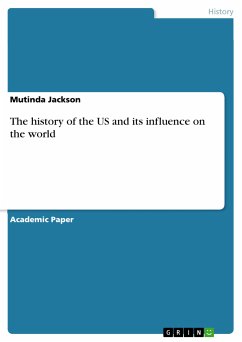Seminar paper from the year 2010 in the subject History - Miscellaneous, grade: 1,0, University of Oregon, language: English, abstract: Diplomatic history has been suffering an old-fashioned image within the historical science for a rather long time. Although there were no fewer conflicts in the world in the last decades, the attention of the historical profession to the research on official documents is quite low. As evidence of that, the number of diplomatic historians at most history departments around the world has shrunk continuously. Critics speak of outmoded methods, which are compared to new methods in modern subfields. It is their opinion that this subfield is unlikely to generate anything very creative. In spite of this accusation, the subfield of diplomatic history has unambiguously changed its face in recent years. Diplomatic historians have widened their perspective and do not only analyze diplomacy anymore. They deal with a bulk of new topics: like race, gender, or approaches borrowed from cultural studies. Traditional approaches are still dominating the field, but new questions and new sources are increasingly used. Michael Hogan describes this development as a cultural turn. It is a wide-spread belief that the concept of diplomatic history has widened. Governments and diplomatic circles have to engage in a broader range of new issues. Thus, historical
Bitte wählen Sie Ihr Anliegen aus.
Rechnungen
Retourenschein anfordern
Bestellstatus
Storno









